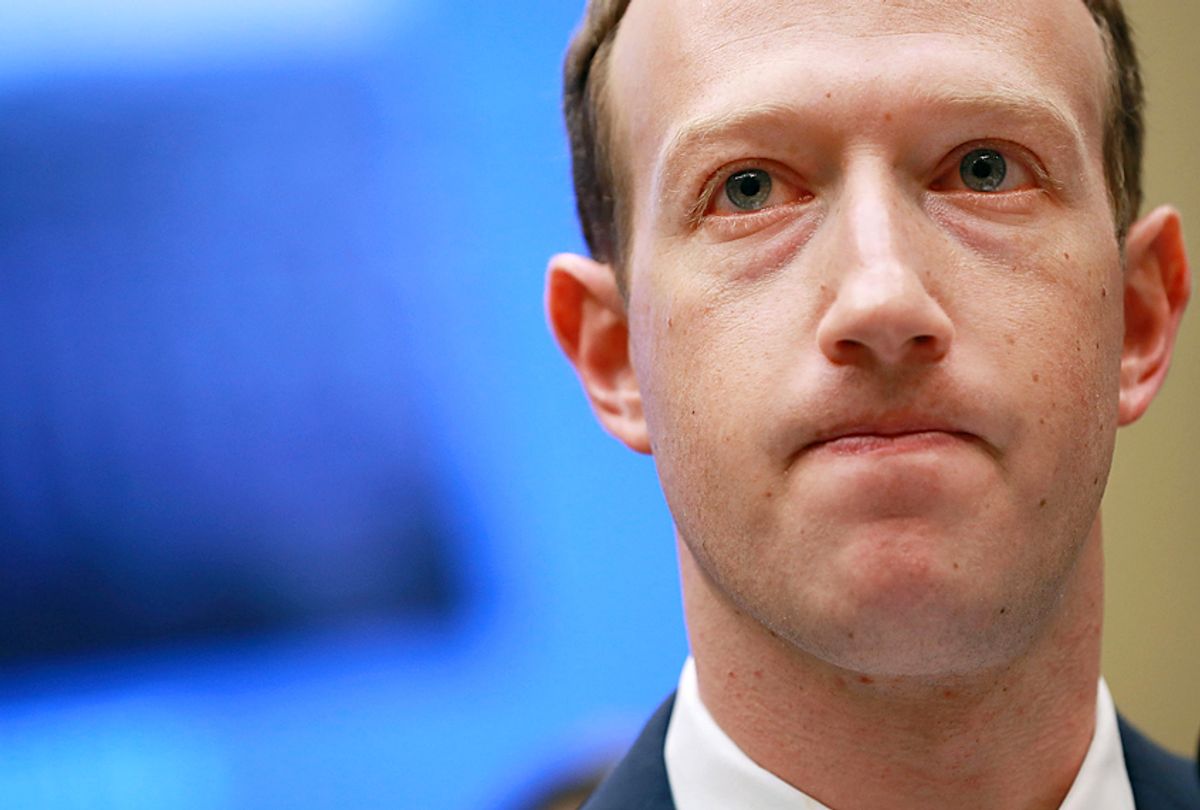In the virtual realm, Facebook is the largest mountain on the horizon. And on Thursday morning, the ground beneath it shook, and investors fled like it was on a fault line that was about to rupture. A day after Facebook reported what were, by its standards, subpar second-quarter earnings, the company sustained the biggest loss ever for a publicly traded company: The social media giant’s stock dropped 19 percent, costing shareholders $120 billion.
By most accounts, investors’ bearishness was simple. “Management commentary about decelerating topline growth during a quarter where the company fell short of ad revenue for the first time is what has led to the stock’s after-hours performance,” Goldman Sachs analysts wrote in a note to clients, according to The New York Times.
Response from other top Wall Street firms’ analysis varied, but most that were selling on Thursday essentially didn’t see much room for the company to grow. If you do the math, as Select All’s Max Read did, you find that Facebook has basically saturated the market of potential users.
READ MORE: Your Job can make you a bad parent
But your Twitter feed probably told a different story. There, the news of Facebook’s stock drop was met, well, a bit less clinically.
https://twitter.com/RealJamesWoods/status/1022488663559745537
The wide sense of schadenfreude is the result of a rocky few years for Facebook — the details of which you’re probably very familiar with. But just in case: As it has grown into the primary site for political discourse — for all discourse, really — Facebook has been manipulated by foreign actors; it has allowed users’ data to be mined and sold without their consent; and it has been shown to largely make users miserable. The company has backed itself into a corner where it’s damned if it does anything and damned if it doesn’t do anything. Policing hateful or misleading discourse invites accusations of bias; failing to do so taints the experience and sows distrust.
“Everybody's on it, and everybody's on it all the time, and it has become the echo chamber under which everybody screams and yells at each other,” said Robert Siegel, a venture capitalist who teaches Management at Stanford. “I think the glee is probably a little bit of comeuppance and probably a little bit of jealousy, because everybody always likes to tear down the big guy. And Facebook is the big guy."
READ MORE: The first casualties of the trade war are Trump supporters
It’s tempting to connect all of the scandal and outrage that Facebook has endured in recent years — which is chronicled in depth by Wired’s Nicolas Thompson — to Thursday’s stock plunge. How could a congressional hearing, an ongoing saga of outside propaganda peddling, and internal discord not make investors queasy? But most experts and analysts agree that scandal was largely unrelated to the hit Facebook took on Thursday. Facebook stock, after all, rallied quickly in the wake of the Cambridge Analytica scandal. Investors don’t care so much about misdeeds; they care about opportunities for grand growth.
Still, while the plunge Facebook experienced on Thursday was extraordinary, the fact that its stock did plunge was fairly standard for a company at its stage of development. Most experts weren’t worried. “I think Facebook will be fine,” said Pai-Ling Yin, Director of USC’s Technology Commercialization Initiative. “Many times, recently successful companies struggle to keep up with growth numbers: as they become larger, the ability to earn that extra 1 percent of profit becomes harder and harder, because the base profitability is so large due to their success. On absolute terms, they are still making more money than the previous year.”
That so many people reacted to bad news for Facebook with delight should be disconcerting for the company, however. It’s indicative of deep dissatisfaction with the platform. In the long term, Facebook faces fundamental issues of identity. "If you’re going to be a vehicle for political engagement, you’re going to always be the poster child for what's happening politically in the country at that moment in time,” said Siegel. “And if you don't stand for anything except being a platform, then you're going to let anybody on. And basically everybody's going to hate everybody else. So the question is, are they a media company and is that how the market thinks of them? Or are they about you and I connecting as two friends? Who is Facebook?"
Recently, Facebook has erred toward the latter. An ad campaign this spring promised that Facebook was going to get back to “what made Facebook good in the first place” — i.e., more pictures of friends’ dogs and infants and less contentious news. The company adjusted its algorithm accordingly.
But Thursday was proof that the ad campaign isn’t enough to undo the damage of the presidential campaign. Though Facebook has paid lip service to washing itself of fake news and harassment, in maintaining its status as an open platform it’s refused to really crack down. And so, Facebook remains synonymous with its transgressions. In wanting to have it both ways, it’s alienated people of both parties. Though the stock hit it took on Thursday won’t spell doom for the behemoth, that people hoped it would points to deeper issues. The ground beneath Facebook is indeed beginning to shake.



Shares